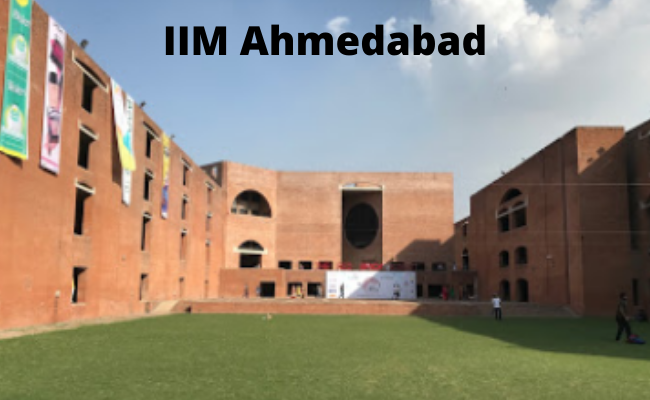
A U.S.-based human rights watchdog Freedom House has downgraded India’s status from ‘Free’ to ‘Partly Free’, in its annual report. The government went on its backfoot counter-accusing the American government-funded NGO of propagating unfounded accounts about India. A government statement rebutted Freedom House’s statement, ‘India’s status as a free country has declined to partly free’ as misleading, incorrect, and misplaced”.
Awarding a Ph.D. based on the student’s dissertation is purely a University matter. Or so we have hitherto assumed. But a BJP MP has asked the Ministry of Education at the central government to vet the contents of an IIM-A dissertation essay.
Why is the IIM-A Director under siege?
The dissertation under dispute has three essays on electoral democracy. The Director of the institute, Mr.Errol D’Souza, had approved the thesis for the award of a Ph.D. he had chaired in March 2020.
A BJP member of parliament had appealed to the education ministry to direct IIM-A to repeal awarding the Ph.D. and get the dissertation reassessed by independent professors.
The ministry of education had asked the IIM-A director to submit a copy of a Ph.D. dissertation by a student at the institute. The ministry has demanded to see the disputed thesis.
The thesis mentions the Bharatiya Janata Party (BJP) and the Bahujan Samaj Party as ethnically constituted parties. The MP has objected to the essay labeling the BJP “a pro-Hindu upper caste party”.
How do education institutes award Ph.Ds.?
Higher education institutions follow a process for awarding Ph.Ds. Institutions that approve dissertations neither own the paper nor claim the contents as their official views. The institute’s academic committee evaluates the paper for its scholastic quality in the relevant field, regardless of its political correctness.
Sanctioning a paper’s Ph.D. status is not tantamount to endorsing the paper’s content. The academic committee is concerned with the authenticity and originality of the paper. The committee or the institution is not bound to defend or fortify the contents of the dissertation. The committee is free to pass the paper for awarding of a degree, regardless of their views on the content. The committee examines the Ph.D. thesis for its role in breaking new grounds.
While a Ph.D. thesis is not necessarily a piece of opinion, those evaluating the thesis need not endorse the views the paper expresses. The BJP MP who has raised the red flag on the IIM Ahmedabad essay is probably aware of the Ph.D. awarding procedure.
The academia outside our country might probably ridicule the idea of public derision of a dissertation’s views. Other civilized governments might neither entertain the idea of reassessing a Ph.D. thesis nor consider rescinding a Ph.D. award. But unfortunately for an institute in India, its student’ thesis is under the scanner by people who have earned doctorates with due process.
The ideal scenario would see the concerned MP critiquing the disputed essay or engaging the scholar in a public debate. But the MP’s coercive tactics with the help of the central ministry is nothing short of hectoring a prestigious institution.
The ministry of education has allegedly cited the IIM-A director’s refusal to succumb to pressure as a reason to put the director through the wringer.
While IIM can continue to challenge summons from the government under the IIM Act, the academia may feel threatened. How many institutions in India can stand up to the might of the government? Many universities and institutions of higher learning have ceded autonomy. They must fall in line when the ministry of education issues summons directly or through the UGC.
Clipping academic freedom
The country’s premier institutions like IITs, IIMs, and the IISC are elite institutions. Private universities and the elite did nothing about the government controlling higher education. Lashing out by science academia drove the government to rescind its order on vetting virtualacademic seminars.
One recalls painfully the case of the Delhi University vice-chancellor succumbing to fundamentalistic objections in the case of the canceled essays on Ramayana a few years ago. Instead of upholding their history department’s autonomy, Delhi University simply chose to avoid confrontation with fundamentalist groups in effacing an essay that had hurt a group’s sentiments. The fact that the essay’s factual basis was not the bone of contention is another matter altogether.
Have politicians and fanatics taken over the education system in India? Have academia’s meek acceptance spurred the zealots into controlling the curriculum, designing the syllabus, and formulate teaching methods to suit their agendas?
The head of the Indian Council of Social Science Research (ICSSR) in a seminar in 2014 had goaded social science institutions for taking up research on topics that were “un-Indian”. Not surprisingly, none of the scholars present at the seminar objected to the head of ICSSR’s reproach.
Few people dare to stand up to bullying. It is heartening to note that the IIM-A director has refused to succumb to the education ministry’s summons to examine a Ph.D. thesis. He did not, at first, consider responding to the ministry’s summons. But when the ministry continued to pound the director for a response, Mr. D’Souza replied curtly that the dissertation was not the ministry’s concern.
IIMs are protected by the IIM Act 2017. The Act declares the Indian Institutes of Management institutions of national importance and enables them to offer degrees and further make substantial changes in the administration.
Stay connected with fellow students on PaGaLGuY for CAT Exam Discussion.
